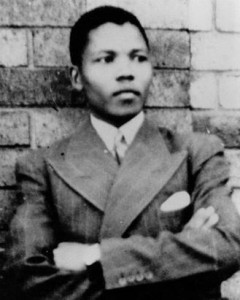The Source of Mandela’s Influence
One of the great—and good—figures of our time passed away yesterday, a man who accomplished so much for his people, his country, and his world.
I will let others far better prepared than I to write about all his accomplishments; I’m just going to focus here on the lesson he leaves for anyone who wants to exert influence on behalf of a cause larger than themselves.
Aristotle told us that the three indispensable tools of persuasion are logos, pathos and ethos—roughly logic, emotion and character. I think those of us who write about these things tend to spend a disproportionate share of ink on the first two—maybe because they are easier to write about, especially in these times when it’s almost politically incorrect to focus on character. That’s a curious omission, considering that Aristotle said that ethos was the most important of the three.
Nelson Mandela spoke with great clarity of logic and force of emotion, but his greatest strength as a persuasive communicator was unquestionably his character.
Aristotle breaks down ethos into three components, common sense, virtue and good will. I submit that Mandela’s towering influence was a result of his clear demonstration of each component.
Common sense: Mandela stood for a clear and simple truth; ten percent of the population could not keep the other 90 percent under its thumb forever, especially in an age of instant and ubiquitous communication. But he also demonstrated common sense in another way, in the sense that he fought for and represented the common aspirations of his people. Unlike many leaders of revolutionary movements, he did not let rigid doctrines or petty squabbles get in the way of the ultimate goal. It’s a lesson our politicians in Washington should learn today—common sense does not reside in the extremes.
Virtue: It’s hard to think of a greater demonstration of virtue than the willingness to spend life in prison for one’s views, and keep in mind that the expected outcome of Mandela’s trial in 1964 was the death penalty, which he was willing to suffer for his movement. In prison he was sometimes treated by the authorities with kid gloves, but he would refuse any special privileges unless his comrades all got the same treatment. He showed he could keep his virtue during the tough times, but perhaps even more surprisingly, he kept it during the good times. He didn’t let power go to his head, surprising the world with his decision not to run for reelection in 1999.
Goodwill: Mandela seemed to delight in Mark Twain’s advice: “Do the right thing. It will gratify some people and astonish the rest.” This was never more evident than in his refusal to harbor (or at least show) any bitterness toward the people who had taken away such a large part of his life. And it wasn’t just the whites; he had to show goodwill to the different factions within the black leadership. Ironically, his given name, Rolihlahla, meant “troublemaker”, but Mandela demonstrated that it was possible to make trouble while maintaining fundamental respect and goodwill toward opponents.
In years to come, when people think of Nelson Mandela, they may not remember any specific things he said, or how he made them feel, but they will surely never forget who he was—because who he was spoke louder than what he said—and that is the perfect embodiment of what Aristotle meant when he said character is the most important factor in influencing others.





[…] As we’ve seen before, Aristotle said that ethos is the most important component of persuasion. Quite simply, people are willing to listen, learn and act depending on how they feel about the source. If they respect or fear the source, they will go along as long as the power remains. If they like the source, they might be more willing to be persuaded as long as it doesn’t go against their own interests.[1] Respect and liking together make for admiration and it can accomplish great things. So, how do you get there? […]